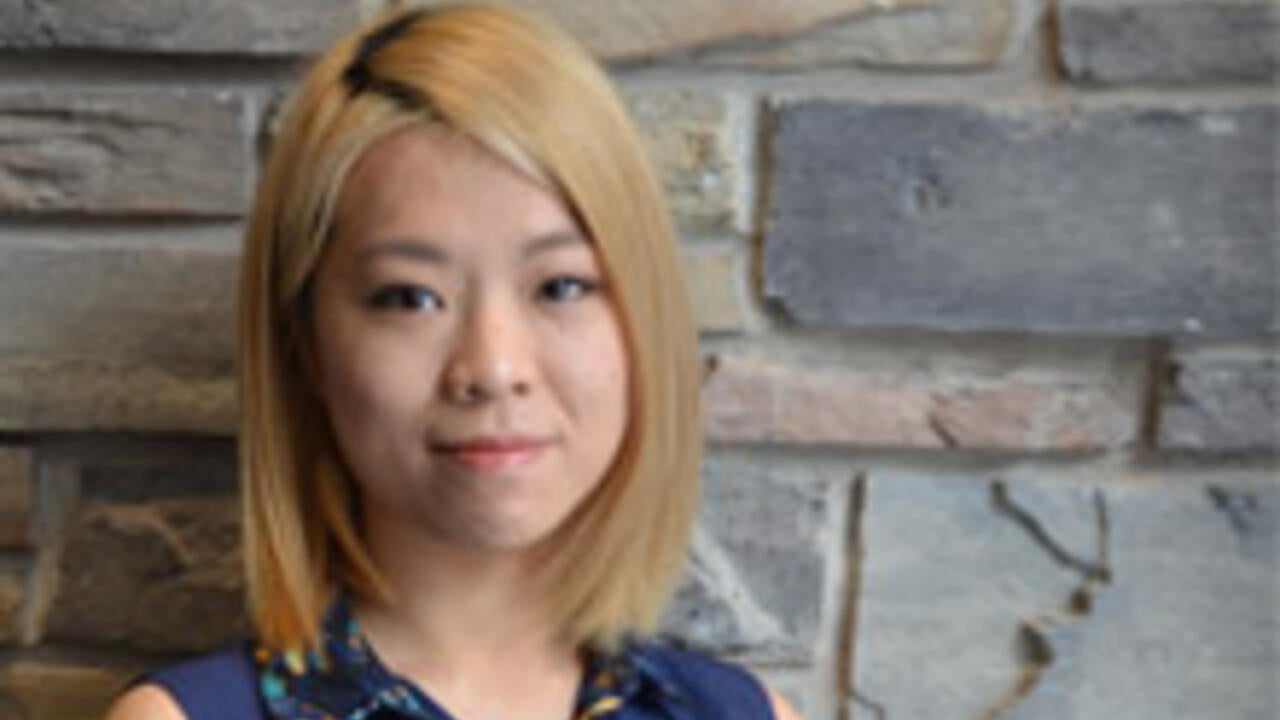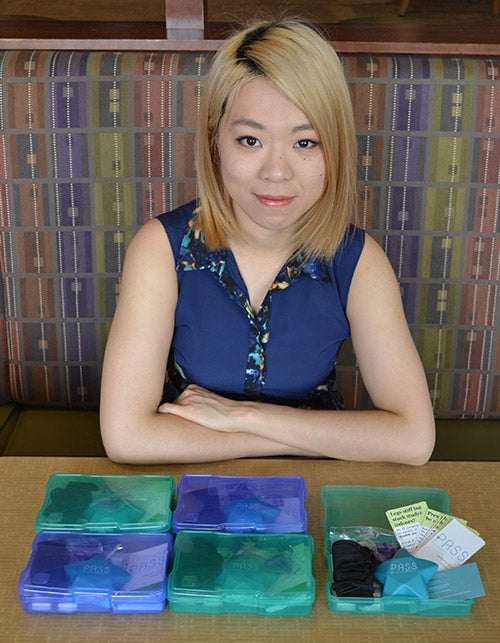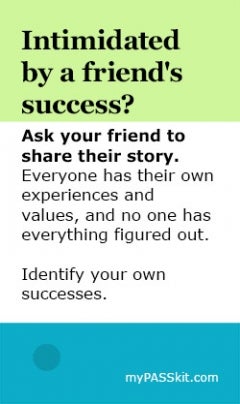
A mental health tool kit for millennials
Waterloo student launches social startup with a mental health kit that engages a generation used to getting advice through tweets, tips and sound bites

Waterloo student launches social startup with a mental health kit that engages a generation used to getting advice through tweets, tips and sound bites
By Heather Bean Marketing and Strategic CommunicationsBefore Tina Chan began her Health Studies degree at the University of Waterloo, she had never pictured herself as an entrepreneur.
“I had zero interest in entrepreneurship before I connected with the Waterloo community,” Chan laughs. “None at all!”
The Faculty of Applied Health Sciences student had a driving passion was for mental health, not business development. But Waterloo’s startup incubation ecosystem isn’t only about tech: it also fosters social change.
After winning a pitch contest, Chan moved into GreenHouse, the social incubator at St. Paul's University College on the Waterloo campus, where she found a supportive network of peers and mentors. “I started to get the feeling, ‘Hey, I can do that!’” she says.

Now, she’s developing the PASS Kit (for Panic, Anxiety and Stress Support). It’s a small toolkit to help university and college students deal with the sometimes-overwhelming stress they can experience: at exam time, during conflict with roommates, or when living alone for the first time just feels like too much. St. Paul’s freshman class of 185 new students tested the kit with very positive results that included reported reductions in procrastination and even self-harm.
The PASS Kit’s contents are simple:
But simple can be effective. The earplugs and eye mask carve out precious personal space in a shared dorm room. Squeezing a stress ball and chewing gum both activate the body, helping to change the channel for someone caught in a damaging mental pattern.
The flash cards, though, are the heart of the PASS Kit, says Chan, and took the bulk of her development time. The University of Waterloo’s Counseling Services endorsed the text, which draws on cognitive behavioural therapy techniques to break negative thought patterns.
“It’s the kind of information counselors and health practitioners might give to patients,” Chan says, “but in condensed format. My generation is used to reading Twitter, tips, little quotes. So we thought, why not translate this information into that friendly format?” There are also hotline numbers for users who might have more serious mental health issues.


Chan is planning to expand distribution across campus. She’s had interest from colleges and universities in Toronto. She also sees a potential market in Waterloo’s startup community. In a way, that’s closing the circle for Chan because she has an insider’s perspective on that culture, herself.
Chan will graduate in spring and plans to dedicate the next year to the PASS Kit. She’s bringing a co-founder onboard—Alaaddin Sidahmed, a Health Studies program graduate.

Read more
Here are the people and events behind some of this year’s most compelling Waterloo stories

Read more
The Kitchener-Waterloo Oktoberfest Rogers Women of the Year awards recognize leaders for outstanding community contributions

Read more
Velocity and Socratica’s builder communities help Waterloo students find their people and build their entrepreneurship side
The University of Waterloo acknowledges that much of our work takes place on the traditional territory of the Neutral, Anishinaabeg, and Haudenosaunee peoples. Our main campus is situated on the Haldimand Tract, the land granted to the Six Nations that includes six miles on each side of the Grand River. Our active work toward reconciliation takes place across our campuses through research, learning, teaching, and community building, and is co-ordinated within the Office of Indigenous Relations.